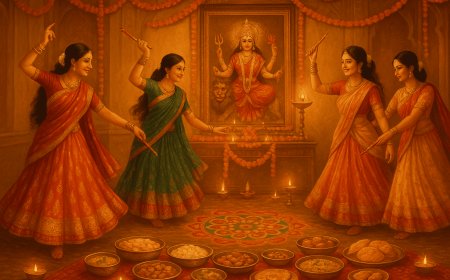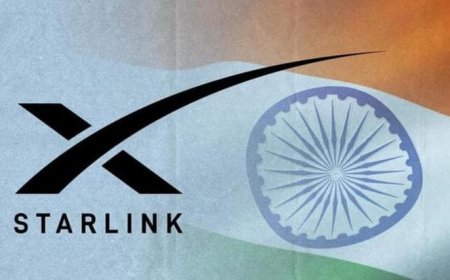Why Squid Game Became Netflix’s Biggest Hit: A Deep Dive into Its Global Phenomenon
Explore why Squid Game became Netflix’s biggest hit. This blog dives deep into its storytelling, social themes, and viral appeal that captivated global audiences. Discover what made it a worldwide sensation.

In late 2021, a Korean survival drama took the world by storm - Squid Game became an instant global sensation. With over 111 million viewers within its first 28 days, it quickly became Netflix’s most-watched show ever, topping charts in more than 80 countries. But how did a show rooted in South Korean culture connect so powerfully with audiences around the world?
The answer lies in a mix of authentic storytelling, universal themes, powerful performances, and a viral visual identity. Let’s explore how Squid Game pulled off this unprecedented success.
The Local-First Strategy That Went Global
When Netflix launched Squid Game, they weren’t trying to create an international blockbuster. In fact, according to Minyoung Kim, Netflix’s Vice President of Asia Content, the platform followed a “local-first” approach. The series was crafted to speak directly to South Korean audiences, addressing the country’s social realities and cultural context.
Ironically, it’s this very specificity that helped it travel globally. Because the show stayed true to its roots - portraying issues like debt, unemployment, and class division in South Korea - it felt authentic and emotionally grounded. And those struggles? They’re not exclusive to Korea. People from all over the world could relate to the feeling of being trapped by financial hardship or the hunger for a better life.
In other words, by going local, Squid Game accidentally went global.
Universal Themes That Hit Home Everywhere
At its core, Squid Game tells the story of Seong Gi-hun, a man weighed down by debt, personal failure, and a desperate need to reconnect with his daughter. Along with 455 other contestants, he joins a mysterious survival game with deadly consequences - all for a shot at winning life-changing money.
The series taps into themes that resonate deeply across cultures:
1. The crushing weight of economic inequality
2. The dehumanizing effects of debt
3. The intense pressure of modern life
4. And the desperate need for second chances
By framing these themes through childhood games - like Red Light, Green Light or Tug of War- the show cleverly contrasts innocence with brutality. The result is a gripping metaphor for the cutthroat competition many face in the real world, whether in the job market or just trying to make ends meet.
Characters That Feel Real and Raw
One of Squid Game’s biggest strengths lies in its character development. Each player in the game isn’t just a name on a jumpsuit - they’re people with backstories, regrets, dreams, and flaws. From Gi-hun’s emotional vulnerability to Ali’s innocence, Sang-woo’s ambition, and Sae-byeok’s quiet strength, viewers see reflections of real-life struggles in each character.
Lee Jung-jae, who plays Gi-hun, shared that the role was deeply personal for him. His portrayal of a man at rock bottom was raw and believable, and that authenticity helped him form a deep connection with audiences.
Lee Byung-hun, who plays the masked “Front Man,” echoed this sentiment. He explained that the show’s success wasn’t just about suspense — it was about showing how people from different walks of life are shaped by the systems they live in.
The Viral Visuals That Took Over the Internet
Beyond storytelling, Squid Game also scored major points for its visual design. The bold sets, surreal game arenas, and color-coded costumes made it instantly recognizable. Let’s not forget the green tracksuits, pink guard uniforms, black masks with shapes, and the creepy Red Light, Green Light doll - they all became instantly iconic.
These elements weren’t just memorable - they were marketable. Social media exploded with memes, cosplay, and viral challenges. People around the globe tried the dalgona candy challenge, dressed up as contestants for Halloween, and bought Squid Game-inspired sneakers (Vans saw a spike in sales of white slip-ons!).
Netflix rode the viral wave smartly, pushing out official merchandise, launching themed events, and continuing to stoke fan excitement across platforms.
Simple Games, Deep Messages
One of the most brilliant aspects of Squid Game is its use of simple, universally known games to deliver complex commentary. You don’t need to speak Korean or understand Korean culture to follow what’s happening - everyone knows how Red Light, Green Light works.
This clever storytelling technique allowed the show to cut through language and cultural barriers, making it easy to understand while still being emotionally rich. It also made the brutality feel more shocking - we’re watching innocent children’s games turn into deadly contests.
Behind it all is Hwang Dong-hyuk, the show’s writer and director. He conceived Squid Game as an allegory for the harsh inequalities of capitalist society. For him, the games were never just games - they were a mirror reflecting the extreme choices people are forced to make when pushed to the edge.
Shifting the Global Entertainment Landscape
Squid Game didn’t just entertain - it changed the entertainment game. Its success has had a ripple effect across the industry:
1. Netflix increased investments in Korean and Asian content
2. Viewers around the world discovered other Korean dramas and films
3. Global audiences became more open to subtitled content
4. Producers recognized the power of culturally specific, authentic storytelling
In many ways, Squid Game opened the floodgates for a more inclusive global content market, where great stories - no matter where they come from - can find massive audiences.
Final Thoughts: More Than Just a Show
At the end of the day, Squid Game is more than a TV show. It’s a cultural phenomenon that proved a few things:
1. Authentic stories resonate more deeply than generic ones
2. Audiences are hungry for bold, original content
3. Global hits don’t need to be made in English
A good story can come from anywhere, and connect everywhere
Whether you watched it for the thrills, the social commentary, or the emotional arcs, one thing’s certain: Squid Game didn’t just top Netflix charts - it changed the rules of global entertainment.
What's Your Reaction?
 Like
0
Like
0
 Dislike
0
Dislike
0
 Love
0
Love
0
 Funny
0
Funny
0
 Angry
0
Angry
0
 Sad
0
Sad
0
 Wow
0
Wow
0





























































































